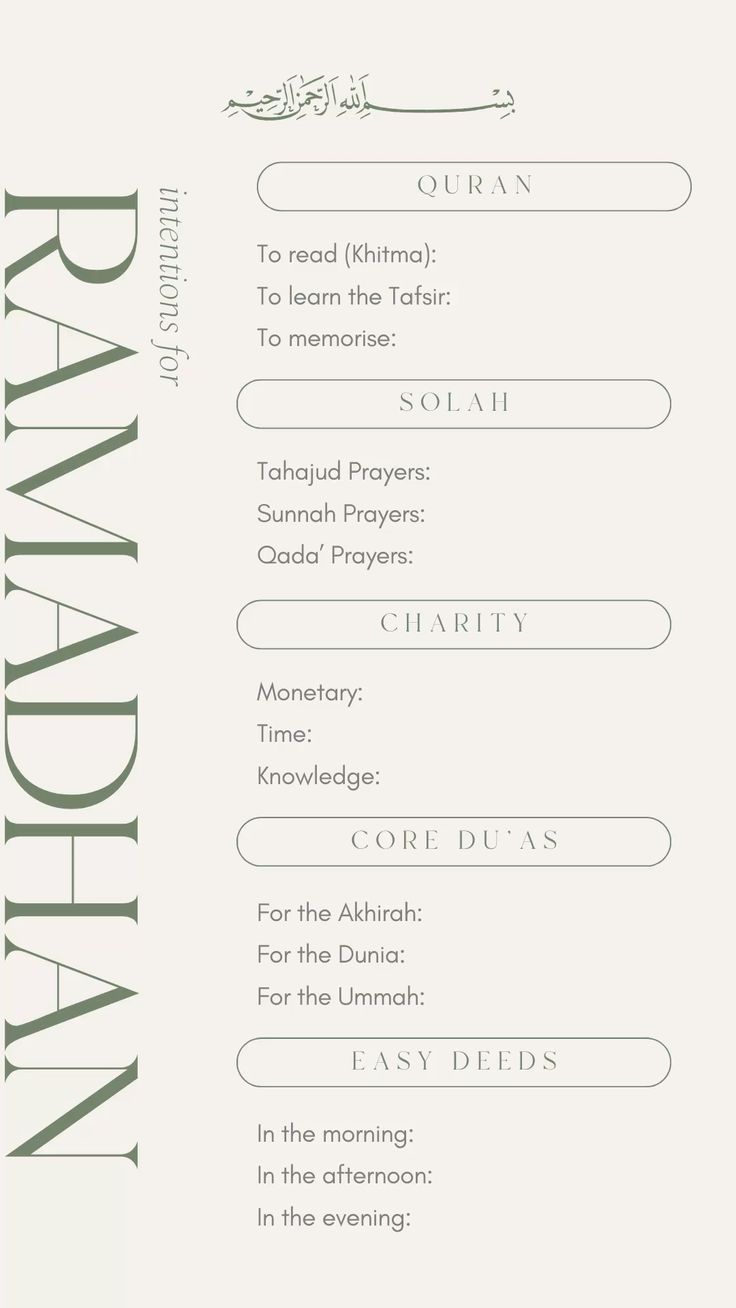
Breaking Generational Cycles: Embracing a More Intentional Ramadan
Ramadan is a time of deep reflection, but for many of us, it also comes with unspoken traditions—some beautiful, others exhausting. From overloaded Iftar tables to pressure for perfection in worship, many of us have inherited habits that don’t always align with what Ramadan is truly about.
But here’s the thing: we have the power to break generational cycles and create a Ramadan experience that is more meaningful, balanced, and intentional—one that nurtures both our spirituality and well-being.
Let’s explore how we can embrace a more mindful Ramadan, free from unnecessary expectations and full of true connection.
1. Redefining Worship: Quality Over Quantity
Growing up, many of us were taught that a “good” Ramadan meant doing everything—completing the Qur’an, praying all Taraweeh, fasting without complaint. While these are wonderful goals, worship should deepen our connection to Allah, not overwhelm us.
✅ How to shift the mindset:
- Focus on sincerity over checklist-style Ibadah. A heartfelt two Rak’ahs of prayer is better than rushing through ten.
- If you can’t finish the entire Qur’an, focus on understanding it. Even one deeply reflected Ayah can transform your heart.
- Allow for different forms of worship. Dhikr while cooking, listening to Islamic lectures, or making Dua during chores—all count!
🔹 Prophet Muhammad ﷺ said: “The deeds most loved by Allah are those done consistently, even if they are small.” (Bukhari, Muslim)
2. Unlearning Food Excess: Nourishment Over Overindulgence
Many of us grew up in homes where Iftar felt like a feast—multiple dishes, sugary drinks, and hours spent in the kitchen. While generosity in feeding others is beautiful, overconsumption can take away from the essence of Ramadan.
✅ How to be more mindful with food:
- Plan simple, nutritious meals that give you energy instead of leaving you sluggish.
- Prioritize sharing food with those in need—this can be just as rewarding as fasting itself.
- Remind yourself: Ramadan is about gratitude, not indulgence.
🔹 Qur’an Reminder: “Eat and drink, but do not be excessive. Indeed, He does not like those who commit excess.” (Qur’an 7:31)
3. Setting Boundaries with Cultural Expectations
Many South Asian and Muslim families have unspoken Ramadan expectations—whether it’s women handling all the cooking, attending every community Iftar, or feeling pressure to overextend in hospitality.
✅ How to break the cycle:
- Have open conversations with family about sharing responsibilities—Ramadan is for everyone, not just one person.
- Say no when needed. Protect your spiritual and mental energy.
- Prioritize what serves your soul. It’s okay to skip a social gathering if you need rest or personal reflection.
🔹 Islamic Reminder: Ease and balance are key. Even the Prophet’s household practiced simplicity in Ramadan.
4. Embracing Rest Without Guilt
Ramadan isn’t just about doing more—it’s also about being more present. Many of us have been raised to push through exhaustion because it’s seen as a sign of devotion. But burnout isn’t a spiritual achievement.
✅ How to rest with intention:
- Allow yourself short naps or a full night’s rest without guilt.
- Reflect and recharge—Ramadan is also about spiritual self-care.
- Know that resting when needed can be an act of worship, because it helps you sustain your energy for Ibadah.
🔹 Prophetic Wisdom: Even the Prophet ﷺ balanced worship with rest. His schedule was disciplined but sustainable.
5. Carrying the Change Beyond Ramadan
A common generational cycle is treating Ramadan as a one-month spiritual boost, only to return to old habits once Eid arrives. But Ramadan is meant to transform us for the long run.
✅ How to make lasting changes:
- Instead of all-or-nothing worship, commit to small, lifelong habits (e.g., one page of Qur’an a day, making Dua before sleep).
- Continue mindful eating and simplicity beyond Ramadan.
- Reflect: What one thing from this Ramadan do I want to carry into my everyday life?
Final Thoughts
Breaking generational cycles doesn’t mean rejecting traditions—it means choosing what truly serves our spiritual and emotional well-being. Ramadan should be a time of peace, balance, and connection—not stress, comparison, or exhaustion.
💛 What’s one habit you’re changing this Ramadan to make it more intentional? Let’s reflect together! 🌙
No Responses